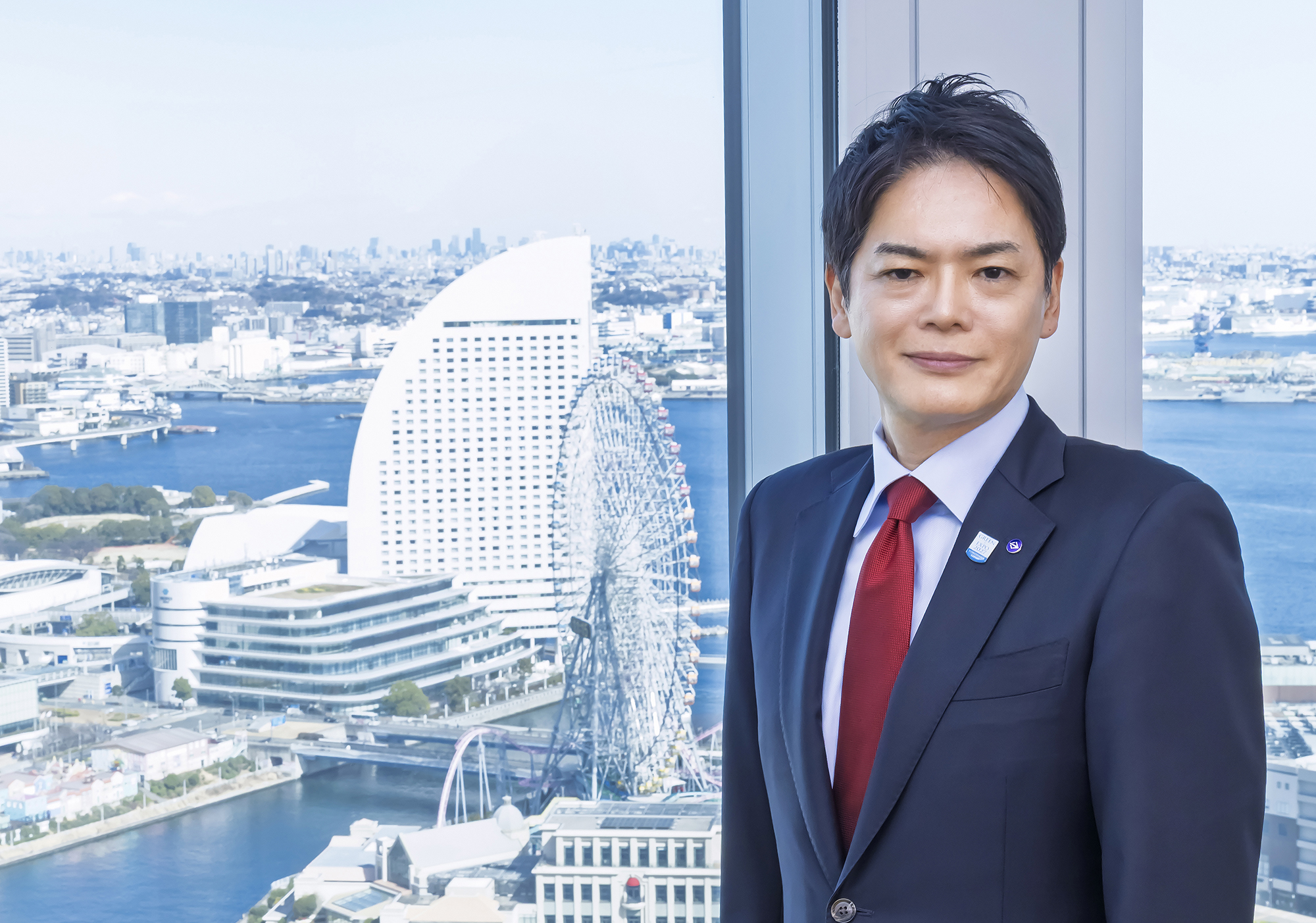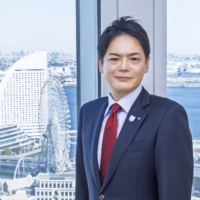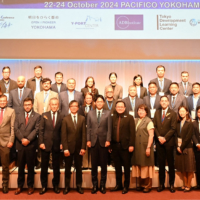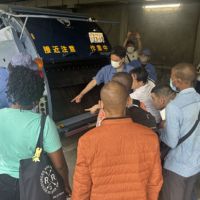As host of the ninth Tokyo International Conference on African Development this year, Yokohama is actively promoting international cooperation on economic, environmental and other measures with local governments. Mayor Takeharu Yamanaka spoke about the crucial role cities play in addressing pressing global issues and the importance of exchange and cooperation with countries around the world, including in Africa.
The Japan Times: What responsibilities do cities bear in fighting climate change, one of the most urgent issues facing the world?
Yamanaka: Cities are playing an increasingly crucial role in promoting climate change measures. Globally, they account for approximately 70% of greenhouse gas emissions. Given their proximity to citizens and businesses, cities are uniquely positioned to drive behavioral change at scale.
Yokohama is an international city with valuable experience in providing technical cooperation in the environmental field to cities across Asia. As a leading green hub in this region, we are further promoting climate change mitigation efforts in cities by sharing policies that actively promote behavioral change and the lessons we have learned from past international cooperation.
Please tell us about Yokohama’s decarbonization initiatives.
The Minato Mirai district, home to Pacifico Yokohama, where TICAD will be held for the fourth time, is a dynamic area with diverse functions including offices, commercial facilities and residences, as well as corporate headquarters, research and development facilities and universities. The district is also a major energy consumption area, accounting for approximately 10% of the city’s commercial energy consumption.
Having been designated as a “decarbonization leading area” by the Environment Ministry, the area is striving to build a decarbonization model for urban areas through public-private partnerships to achieve its ambitious goal of achieving net-zero carbon emissions from electricity consumption in the power sector by 2030.
With around 140,000 people working within just 2 square kilometers, Minato Mirai represents a microcosm of the modern city — necessitating a multipronged approach to decarbonization. For example, there is a road surface that generates solar power to supply electricity to buildings along the road. We are also promoting various initiatives in collaboration with the public and with companies, such as horizontal recycling of used plastic bottles into new bottles and production of sustainable aviation fuel from used cooking oil.
We have also begun efforts to visualize resource circulation within the district. This marks the first initiative in Japan to quantitatively assess resource inflows and outflows as well as the amount of resources that are recycled, and to quantify the circularity of the process. This will enable us not only to quantitatively track our progress in the transition to a circular economy, but also identify areas of high priority for improving the circularity rate, which is expected to lead to the reduction of greenhouse gas emissions.
How does Yokohama engage the rest of the world in sharing its knowledge and experience with decarbonization?
I have been selected as an OECD Champion Mayor for Inclusive Growth and serve as an East Asia board member of the Global Covenant of Mayors for Climate and Energy. I am fully committed to driving initiatives for a green society, including climate change mitigation together with like-minded city leaders worldwide.
Last May, I had the honor of being the sole mayor from Asia invited to attend “From Climate Crisis to Climate Resilience,” a summit hosted by the Pontifical Academy of Sciences and the Pontifical Academy of Social Sciences at the Vatican, where I delivered a speech on Yokohama’s efforts toward achieving a green society.
The Intergovernmental Panel on Climate Change has decided to prepare a “Special Report on Climate Change and Cities” by 2027. To incorporate the experiences of Japanese local governments into this report, Japan’s Environment Ministry and the International Institute for Applied Systems Analysis, an international research institute addressing issues such as climate change and sustainability, jointly hosted a seminar in Yokohama in March. In my keynote speech at the seminar, I had the opportunity to speak on behalf of the local governments and shared specific examples of our city’s efforts toward decarbonization and the transition to a circular economy with the international community, including IPCC experts, and discussed the pivotal role cities should play in these initiatives.
Yokohama has been selected as the first city in the world to undergo evaluation by the Organisation for Economic Co-operation and Development as a model for climate change measures. The OECD’s report, published this April, highly praised Yokohama’s wide-ranging initiatives for promoting decarbonization through public-private collaboration in leading regions and its continued contributions to sustainable development in other Asian cities. We hope this report, widely shared with the international community, will contribute to addressing global challenges.
What are some examples of collaboration with other cities or areas on environmental and economic sustainability?
Yokohama hosts the Asia Smart City Conference every year, aiming to foster a green society that balances economic growth with a healthy urban environment. Last year, the event gathered more than 2,000 stakeholders from 39 cities and international organizations, sharing knowledge and ideas for achieving a green society.
Yokohama effectively utilizes the Asia Smart City Conference as a platform for sharing knowledge and creating projects for intercity cooperation through public-private partnerships with international organizations, government agencies and companies. Since signing a memorandum of technical cooperation with the Bangkok Metropolitan Administration in 2012, for example, Yokohama has dispatched officials on over 20 visits to provide expert technical advice, contributing to the Bangkok Master Plan on Climate Change and the Energy Action Plan.
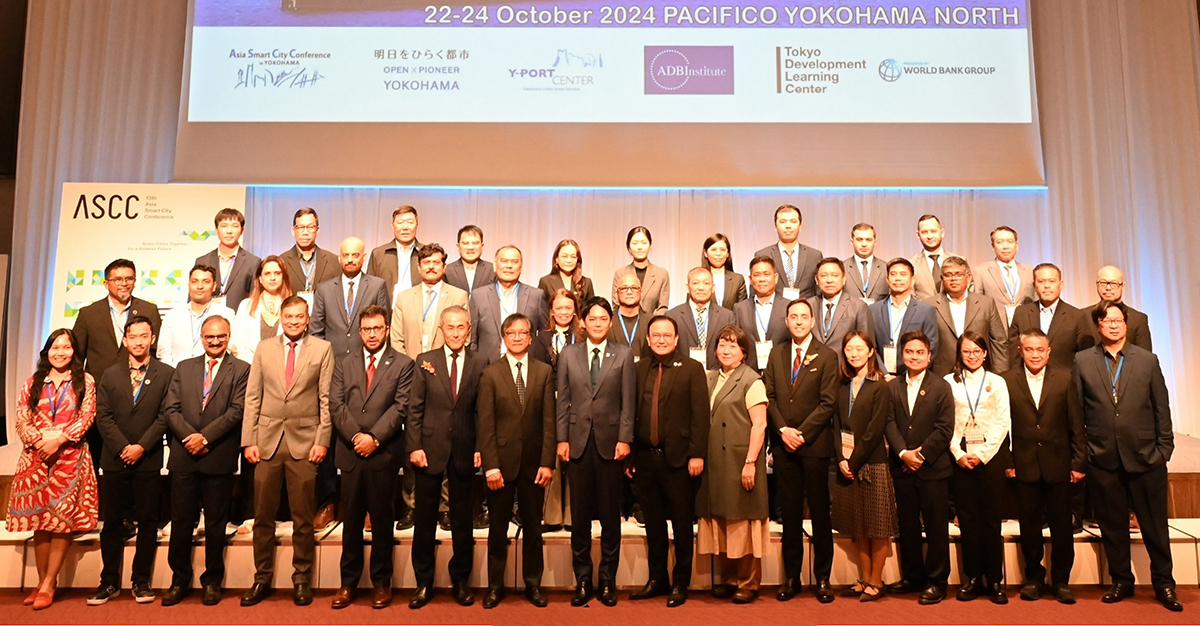
How has Yokohama been fostering its engagement with Africa?
In Africa, we have been promoting technical cooperation mainly in the areas of waste management, water supply and port development to share technology and expertise with African cities that are undergoing rapid development. To date, we have accepted more than 1,400 individuals from African countries for study tours and training. Among these, our technical cooperation in the water supply sector which began with the dispatch of personnel to Kenya in 1977 has spanned nearly half a century.
In addition, we have deepened ties with African countries in various ways, including exchanges between children in Yokohama and those in Africa who are the next generation’s leaders, support for Yokohama-based companies expanding their businesses in Africa, and support for female entrepreneurs in Africa.
Furthermore, in the lead-up to TICAD 9, we have invited ambassadors from African countries to Yokohama for discussions, and in September 2024 we were honored to be invited to the African Diplomatic Corps in Tokyo meeting, where we introduced Yokohama’s various policies and initiatives, thereby strengthening our collaboration and cooperation.
It is a great privilege for Yokohama to host TICAD for the fourth time. By strengthening global partnerships, we aim to contribute to Africa’s sustainable growth and further elevate Yokohama’s international presence, especially in sustainability.
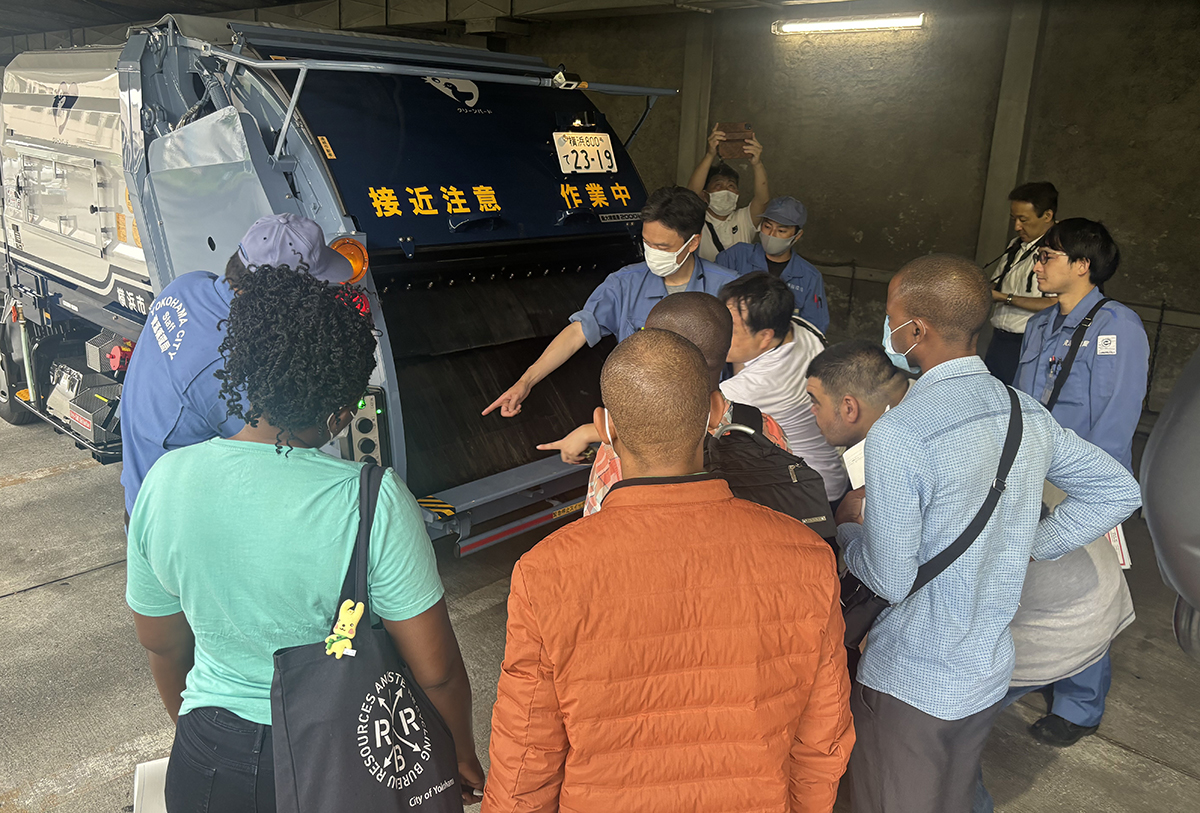
What are Yokohama’s aspirations for global sustainability?
Toward the realization of a sustainable green society, Yokohama will be a host city for the International Horticultural Expo in 2027. This international exposition aims to address global challenges such as climate change and biodiversity loss through the power of green initiatives.
The venue, which will be surrounded by 10 million flowers and plants, will offer countless discoveries and learning opportunities day and night. This expo will offer exhibitions and experiences that will delight people from around the world, ranging from cutting-edge technologies that contribute to the realization of a green society to learning and experiences in agriculture and food supported by biodiversity. Visitors can also enjoy the traditional beauty of Japan through Japanese gardens, ikebana and bonsai crafted with the highest level of technique and expertise.
Through this expo, we aim to inspire people worldwide to take action for living in harmony with the Earth, starting from Yokohama, and spread this movement across the globe. Let us work together to create a sustainable, circular society.
This article is sponsored by the Yokohama Municipal Government.



